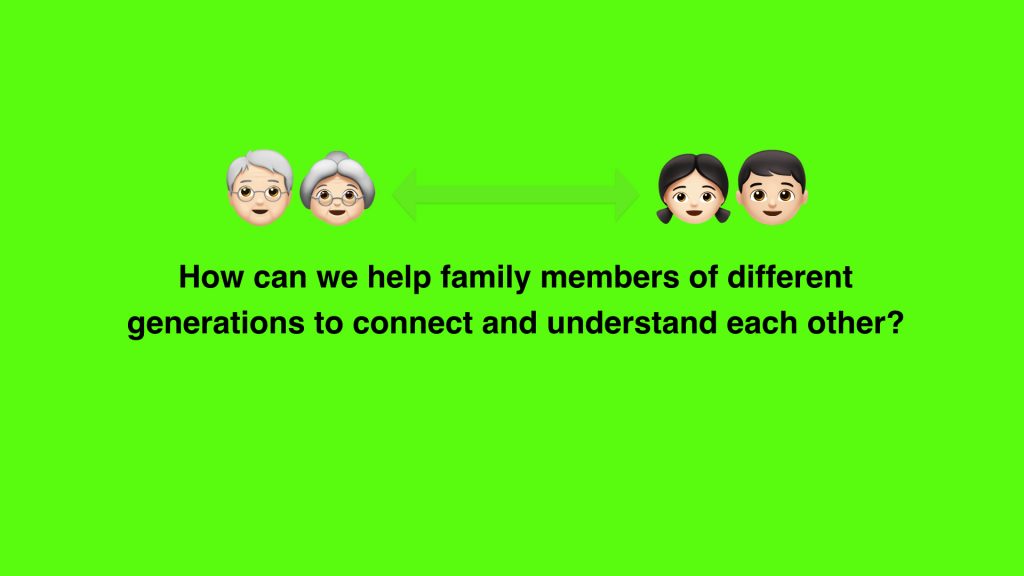My project: How to handle the conflict on marriage and love views between two generations?
Taking on the feedback from tutors (David and Jasminka ), matchmaker is a key person that have power to talk with parents, so I started to interview with matchmaker that I could use as primary research to support my project.
Describe your job as a matchmaker.
Agent A: It’s a very happy job because I develop very personal friendships with my clients. They are very open with their stories and share their own problems and life purposes. It takes a lot of skill to build trust in a short amount of time. I would like to think that we would be friends outside the matchmaking sphere.
Agent B: As a matchmaker, we work closely with our singles to learn more about their preferences. What kind of profile, physical and personality preferences do they have? This includes age, education level, religion, ethnicity, smoking and drinking habits, height and build. And personality preferences would include characteristics such as introverted vs. extroverted, spontaneous vs. organised, etc… We meet every one of our clients for face-to-face consultations and this matchmaker’s assessment is very important, because sometimes how clients perceive themselves may be different from how others perceive them. We also take the time to find out about our clients’ past relationships, passions, values and what is most important to them.
What types of people do you think use matchmaking agencies the most?
Agent A: My clients are usually professionals: bankers, lawyers, doctors, entrepreneurs or executives. I would say the quality of the people in my agency is quite high.
Agent B: People who are busy. People who have no time to get a drink, people who live generally further from bars or restaurants, or people whose social circles are less defined. And parents also help their child to find their partner through matchmaking agencies.
Are there more available women that seek to find a partner or more available men? If so, why do you think there is a gender imbalance?
Agent A: One reason is that in the past, marriage is seen as a way to financial stability for women. However, with more and more ladies being highly educated and doing well in their careers, marriage is no longer about financial stability. They are looking for someone who is on the same level as them in terms of education level as well as income. There’s a phenomenon known as the “education squeeze”, coined by sociologists. Women tend to marry up and men tend to marry down. Hence, if you put 100 men and 100 women together and ask them to pair up, at the end of the day, the two groups left: the top 20 percent most educated women, and the bottom 20 percent least educated men.
Is there a stigma against going to a matchmaker or to speed-dating events to find a partner?
Agent A: When we first started 12 years ago, there used to be a stigma. But now, we are living in an era where people are used to outsourcing things. For instance, when we are going on a trip, we look for a travel agency; when we are looking for a job, we turn to a recruitment agency. So it’s the same with singles who are looking to find love. And as they see that our database has successful professionals just like you and me, they are more open to turning to dating agencies.
How involved are matchmakers?
Agent A: We are there for our clients every step of the way, from meeting them first to learning more about their profile and preferences, handpicking their matches, arranging the date, booking the date venue, reminding our clients before the date, and contacting them at the end of every date to get their feedback. Clients will also call us to ask for dating tips or advice and we will help them in any way we can.
Have you ever met someone who was forced by their parents to go on a blind date?
Agent A: Many young people are forced to date by real pressure and their parents at the beginning. Although they are forced to date, they also will call us for dating tips and advice on dating, and we will help them, which shows that they still attach great importance to the blind date. Although they are forced by parents, they really want to find their soul mate, but maybe they don’t agree with their parents’ behavior.
